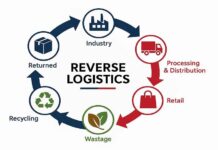Management of supply chains would be easier if the demand and supply remained consistent, but in reality, they keep fluctuating often in an unpredictable way, thereby creating issues for businesses trying to maintain as much inventory levels as possible.
The disruptions caused due to the once in a millennium event such as the COVID-19 pandemic underscore just how rapidly supply chain dynamics can go on to transform, therefore leading to expensive stockouts or even excess inventory.
Artificial intelligence happens to be shifting supply chain management by way of offering real-time insights that traditional methods often miss. By way of the detection of slight changes in demand patterns, supply performance, as well as logistics bottlenecks, artificial intelligence enables businesses to stay ahead of the curve and make utmost use when it comes to inventory and also enhance the entire efficiency.
Let’s take a look at how artificial intelligence is actually revolutionizing supply chain management—
-
Enabling healthcare professionals to stress patients rather than logistics
Artificial intelligence happens to have huge potential when it comes to optimizing inventory management within the healthcare supply chain gamut. Through precisely predicting demand, AI makes sure that essential medication as well as supplies are always up for grabs, thereby decreasing waste and preventing any shortages. Executing artificial intelligence can go on to streamline operations, elevate efficiency, and also enable healthcare professionals to stress more on patient care rather than looking into logistics.
-
Taking Care of Cargo Theft
Artificial intelligence will play a massive role when it comes to fighting cargo theft. It can be employed so as to analyze huge amounts of information in order to identify risks for cargo shipments. This enables anticipating where and when theft can take place, therefore, allowing for much better protection. It can also detect activity that’s unusual, such as sudden stops or access that’s unauthorized, and quickly alert authorized people to potential problems that are cropping up through planning safer routes as well as automating tasks after a theft has taken place. Artificial intelligence can enhance security and also decrease the time it takes to respond.
-
Making truck driver recruitment better
Artificial intelligence happens to have prominent potential when it comes to truck driver recruitment within supply chain management through evaluating data on driver performance as well as retention, and AI can speed up which candidates are going to perform well and stay long-term. This helps with the recruitment process, enhances hiring quality, and also makes sure of a dependable transport network, which is critical for the efficient functioning of the supply chain operations.
-
Moving away from stockouts
Inventory management happens to be an area of supply chain that has a great opportunity for artificial intelligence to elevate accuracy as well as efficiency. When it comes to stock control, it evaluates historical data as well as present trends and enables optimizing inventory levels by having productive analytics in place. AI forecasts the demand for future helping companies to keep the right inventory stock levels in order to meet the needs of the customer and make sure that timely restocking and no stockouts happen. It can also help operational efficiency and satisfaction in terms of customer requirements and also decrease costs.
-
Optimizing the transportation management system
Through leveraging artificial intelligence, transportation management systems, also called TMS, can evaluate massive amounts of real-time and historical data like traffic patterns, fuel costs, conditions weather conditions, as well as driver availability, in order to optimize suggestions based on the route and even scheduling in real time. AI-driven protective analytics enables TMS to alter routes proactively, decrease delays, enhance efficiency, and also increase load utilization.
-
Offering predictive analytics
There is indeed a prominent buzz that is surrounding opportunities that artificial intelligence brings to the supply chain. But it all boils down to data. Productive analytics makes use of data to elevate demand forecasting, optimize the supply chain operations, and, at the same time, manage risks. AI can help analyze historical data and even external factors so as to predict demand, pinpoint inefficiency, and also anticipate disruption by enabling companies to optimize inventory levels, decrease the cost, mitigate any risks that are there, and thereby lead to more efficient as well as resilient supply chains.
-
Directing the demand by customer
Demand forecasting when it comes to supply chain management is one area that has great AI potential. AI holds remarkable precision when it comes to analyzing real-time data in order to predict customer demand. Due to this, the company may better control their inventory levels and slash expenses and, at the same time, guarantee that goods are available when clients actually need them, hence improving the overall process efficiency as well as the responsiveness.
-
Offering an end-to-end visibility
Artificial intelligence can help with end-to-end visibility and also make forecasting capabilities in supply chains. For example, if a copper mine shuts down in China, it can forecast the impact it might have on the production of OEMs across North America, suggest some other suppliers, and also alter logistics in order to mitigate any kind of disruption and ensure business continuity as well as resilience.
-
Anticipating demand in an array of industries
Reduction of demand based on the previous data happens to be one of artificial intelligence’s robust suits. Having an inventory that is as close to the demand as possible will help supply chain managers in a massive way. One doesn’t want to run the risk of having very few items, for it will go to hit the top line. However, one doesn’t also want a surplus since that is going to create waste and even hamper the bottom line. Artificial intelligence can go through past data and also enable one to keep just the right amount that’s needed.

























